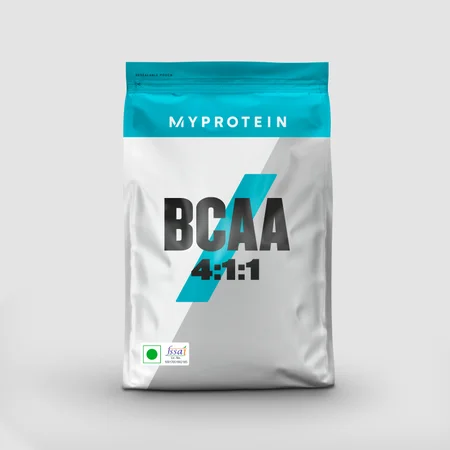Dipotassium Phosphate | Benefits, Side Effects & Uses

- What is dipotassium phosphate?
- Dipotassium phosphate uses.
- Dipotassium phosphate benefits.
- Dipotassium phosphate side effects.
- FAQs

What Is Dipotassium Phosphate?
Dipotassium phosphate (DKP) is a water-soluble salt that usually comes in the form of a colourless, white substance. Commercially, it's known as a food additive, fertiliser, and buffering agent.
It is a top source of potassium and phosphorus. This is where the ‘phosphate’ part comes in. Phosphate is a charged particle that contains the mineral phosphorus. Your body needs this to be able to maintain, repair and rebuild your healthy teeth and bones. Not only this, but phosphate makes your muscles contract and function as they should.
Dipotassium Phosphate Uses
DKP is commonly used for the properties that make it effective as an emulsifier, stabiliser and texturiser. Though it’s considered safe, some are convinced it has potentially dangerous health effects.
In the food industry, dipotassium phosphate functions as an effective buffering agent and chelating agent, which may also be used for yeast food, emulsifying salt, and a synergistic agent of antioxidation. Further to this dipotassium phosphate can be found on many a jar and packet label due to its use as a food additive. Its role here is to lower the acid levels in processed foods, along with lowering the sodium levels in low-sodium cheeses. It is also used as a stabiliser in non-dairy creamers to prevent coagulation.
It is also edible and used for health benefits as a nutrient supplement and as a protein stabiliser in weight training drinks and powder mixes.
Dipotassium Phosphate Benefits
At a quick glance, the primary benefit of dipotassium phosphate is that it is a convenient source of potassium, which contributes to your normal muscle function. For weightlifters, bodybuilders and athletes, dipotassium phosphate supplements may be useful for several reasons.
1. May increase energy in workouts
Firstly, it can be used in energy supplements for workouts requiring prolonged periods of work without rest, such as long-distance running, team sports, high-intensity interval training and endurance-style weightlifting sessions. It does this by supporting the recovery of your muscles, which means a better recovery rate and the ability to get in more lifts. However, the evidence suggests that the results of potassium phosphate supplementation may vary based on individual response and the specific supplement protocol.1
To summarise, dipotassium phosphate improves endurance by increasing your body’s efficiency in transporting oxygen to your muscles, thus helping energy production. This is particularly effective for high intensity and particularly strenuous exercises such as heavy lifting and sprints.
2. Helps increase your intake of potassium
Potassium is one of the seven essential macro minerals, of which your body requires at least 100 milligrams on a daily basis in order to sufficiently support its key processes. Whilst it’s possible to hit your requirements from dietary sources such as fruits, vegetables, fish and meat, supplementing potassium can help increase your daily intake. A healthy intake of potassium decreases your risk of stroke, lowers your blood pressure, protects you against the loss of muscle mass, preserves your bone mineral density, and reduces the risk of kidney stones.
Dipotassium Phosphate Side Effects
Dipotassium phosphate is declared “generally recognised as safe (GRAS)” by the U.S. Food and Drug Administration (FDA). Some, however, still suggest that the supplement should be approached with caution, particularly for people with pre-existing health conditions.
On top of this, an article published in “Deutsches Arzteblatt International” in January 2012 raises the issue that phosphate additives in dietary sources are potentially problematic for people who have conditions that require them to limit their phosphorus levels.
The type of phosphorus found in disodium phosphate and other food additives is more easily absorbed than the kind that is naturally found in food sources, so it can potentially rapidly increase phosphorus levels too much in people who eat a lot of processed foods containing these additives.
Though dipotassium phosphate is regarded as a safe supplement, there are some known side effects, which are mostly associated with prolonged use. This is because using the supplement over a longer period can cause an imbalance to the phosphates in your body, resulting in the following side effects:
Headaches - Constipation
- Confusions
- Hyperphosphatemia
- Nausea
- Dizziness
- Vomiting
- Diarrhoea
You should always check with a medical professional if you have any reservations about a supplement you're considering. If you're taking dipotassium phosphate for its health and performance benefits, including energy production and endurance, then you should check whether it is the right option for you and whether an alternative may be available. If your diet contains enough potassium there may be other supplements more suitable to your training goals.
For example, if it’s increased energy and muscular function for short bursts of activity and power that you're looking at, try creatine or our BCAAs.
FAQs
What is dipotassium phosphate?
Dipotassium phosphate is a water-soluble salt, sought for its role in the production of ATP, a molecule your body uses for energy.
What are the benefits of dipotassium phosphate?
It is a great source of potassium, essential for contributing to normal muscle function. It also supports the recovery of muscles, making it ideal for endurance athletes.
What are the side effects of dipotassium phosphate?
READ THESE NEXT:










